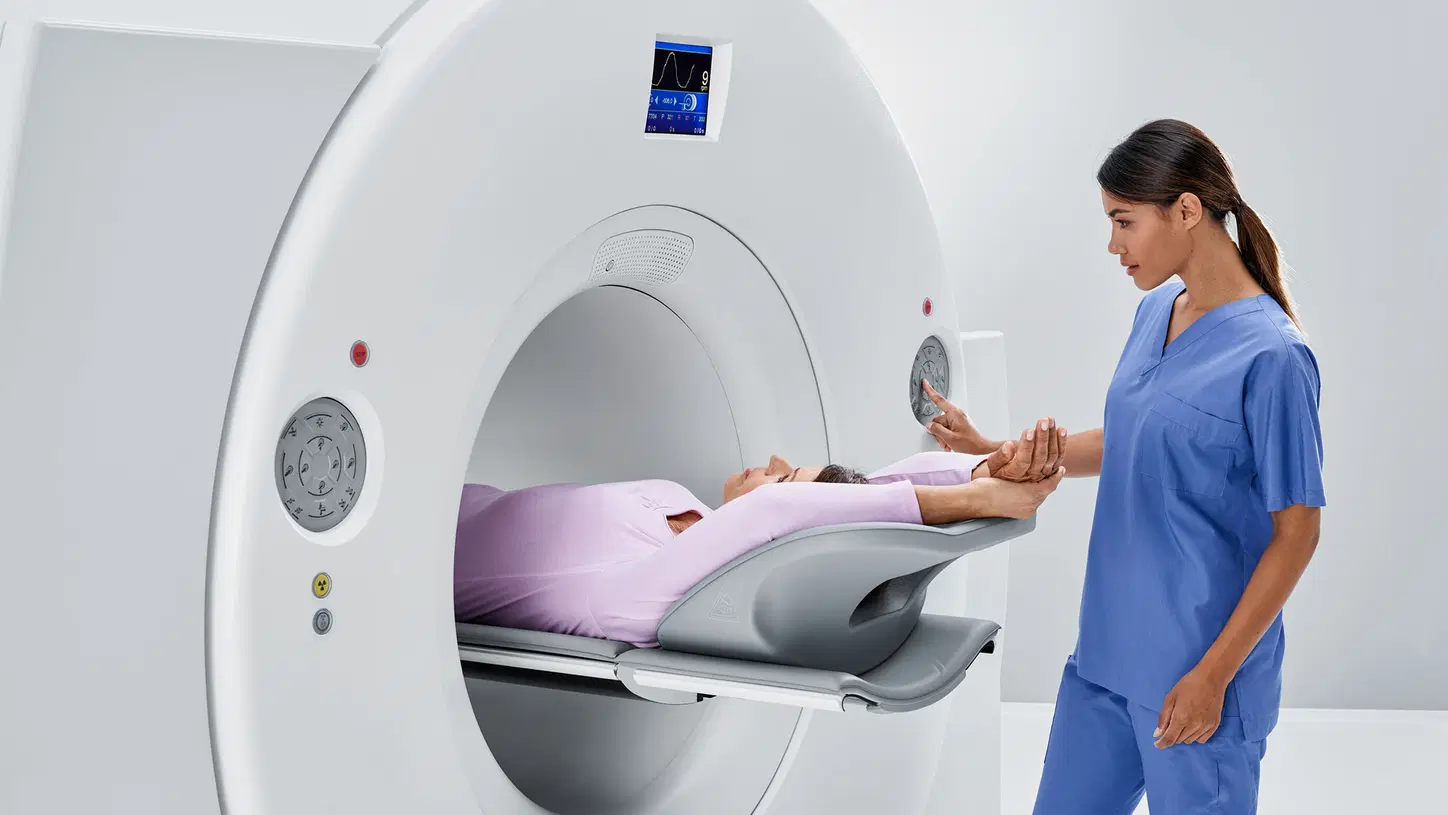CAT SCAN
CAT SCAN
A CAT scan (aka: CT scan), short for Computed Tomography Scan, is a cutting-edge medical imaging technique that gives us an incredibly detailed look inside your body. It’s like a high-resolution photograph. But instead of capturing just one angle, it creates a 3D map of your anatomy.
During a CAT scan, you’ll lie on a comfortable table that moves through a large, donut-shaped machine called a CT scanner. The scanner has an X-ray tube and detectors that rotate around you, taking a series of X-ray images from different angles. These images are then processed by a computer to generate cross-sectional slices of your body.
The CT scanner uses X-rays, a type of electromagnetic radiation, to capture these images. X-rays are beams of energy that can penetrate through your body’s tissues. Different tissues absorb X-rays to varying degrees, creating contrast in the images. This contrast helps us differentiate between various structures and identify any abnormalities.
If your healthcare provider recommends a CAT scan, rest assured you’ll receive the highest level of care from our dedicated team at Universal Imaging & Radiology in Miami. Feel free to reach out to us for more details. Schedule an appointment online today!
Frequently Asked Questions and Answers:
Preparation
Tell your doctor if you are pregnant or suspect you may be pregnant. Your doctor may postpone the exam or choose an alternative exam to reduce the possible risk of exposing your fetus to radiation.
If you have allergies or asthma and your CT scan requires a contrast medium, there is a slight risk of an allergic reaction to the contrast medium.
Diabetes, heart disease, kidney problems or thyroid conditions also increase your risk of reaction to the contrast medium.
Preparation for your CT scan depends on which part of your body will be scanned.
Some scans, typically abdominal and pelvic, require a liquid contrast medium prior to your exam. Contrast medium can be taken by mouth, enema or intravenously. The oral contrast is used to visualize your intestinal tract, while an intravenous (IV) contrast helps to emphasize blood vessels. The contrast medium blocks X-rays and appears white on images, which helps emphasize the blood vessels.
You may eat a normal diet and take daily medications, however, depending on the body area being scanned, your doctor may ask you to temporarily modify your diet, take laxatives, enemas or suppositories.
You may be asked to remove your clothing and put on a hospital gown.
You will be asked to remove all metal or electronic objects from your body before the exam as these objects interfere with the quality of the images.
Exam
CT scans are painless and can be expected to last no more than an hour depending on the required preparation and whether use of a contrast medium is included.
Our technologist will prepare and guide you by explaining the procedure, assisting in removal of jewelry and other metal objects, and positioning you to ensure the highest quality images are obtained from your exam.
You may feel a brief sensation of heat or experience a metallic taste in your mouth if an intravenous contrast medium is used. If an enema is used to administer contrast, typically for gastrointestinal exams, you may feel cramping or a sense of fullness.
You will lie on a narrow table that slides through the opening of a large device called the gantry. The table can be raised or lowered. During a CT scan, a special head cradle, pillows or straps may be used to help you remain in position.
The table will move slowly through the gantry as the X-ray tube rotates around your body. You may be asked to hold your breath while the table is moving to avoid blurring the images. You will hear noises similar to a small airplane or spinning clothes dryer as the X-ray rotates to create images of your body.
The technologist supervises the CT scan from a control room and can always see and hear you. An intercom is used to communicate.
Results
When your exam is complete you may leave and resume regular activities based on your doctor’s instructions. If you received a contrast medium you will be given instructions to help remove the medium from your body. This will likely include drinking lots of fluids.
A radiologist will review your exam images and report the findings to your doctor within 24 hours. Your doctor will then discuss the findings and next steps with you.
CT scan risks are similar to those of conventional X-rays. You are briefly exposed to radiation during the CT scan. Scientific and medical experts believe that enough valuable information is provided to outweigh the associated risks.
Although it is rare, there is a slight risk of an allergic reaction to contrast material if your exam requires it. Most reactions result in itchiness or hives. For individuals with asthma who are allergic, the reaction can be an asthma attack. In very rare instances, an allergic reaction may cause swelling in your throat or other areas of your body. Immediately tell your technologist or doctor if you experience any of these symptoms during or after your exam.
Our staff and physicians are prepared should any type of emergency situation occur.
First Choice for Imaging and Radiology in South Florida
Universal Imaging & Radiology is the top choice for imaging and radiology services in South Florida. With our unwavering commitment to excellence in patient care and cutting-edge technology, we provide unparalleled service to our valued patients.
Our team of experienced radiologists and technologists is dedicated to your comfort and well-being. Utilizing state-of-the-art equipment, we offer comprehensive digital imaging services including digital mammography, MRI, X-rays, and bone density scan screenings.
To experience how our expertise and convenient services can make a difference in your healthcare journey, contact us today and let us serve you with excellence. You can reach us by phone 305-821-8585.

